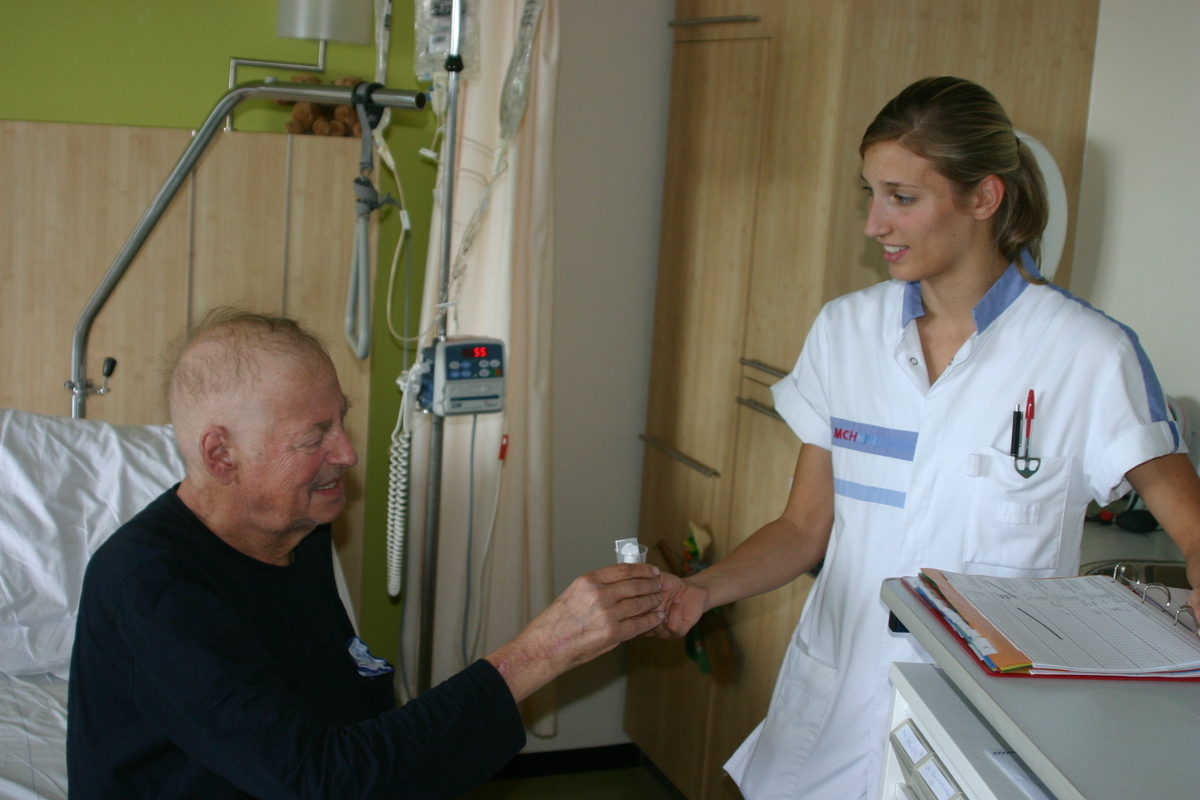Putting the patient at the centre – Pharmaceutical Strategy for Europe welcomed by hospital pharmacists
26 November 2020

- EAHP welcomes the ambitious proposals included in the new Pharmaceutical Strategy for Europe.
- Hospital pharmacists are committed to supporting their implementation to improve the access of patients to high-quality, effective and safe care.
- EAHP calls for the involvement of hospital pharmacy expertise in areas relevant for the profession such as tackling medicines shortages, improving patient safety, moving forward the digital transformation of care and combatting antimicrobial resistance.
This week the European Commission delivered on one of the items mentioned in the mission letter of Stella Kyriakides, Commissioner for Health and Food Safety. The new Pharmaceutical Strategy for Europe forms an essential building block for the European Health Union that was announced earlier this month. The European Association of Hospital Pharmacists (EAHP) and its members welcome the publication of the Pharmaceutical Strategy and its all-encompassing nature focusing on the whole life cycle of a medicine stretching from research and authorisation over its supply to the safe distribution to patients.
EAHP President Petr Horák highlighted that “Patient-centredness, which lies at the heart of all representations made by hospital pharmacists, is a key element for the delivery of high-quality, effective and safe care. Also, cooperation and communication via a structural dialogue can contribute immensely to the improvement of health and care in Europe. Since many patients are still without access to the essential medicines they need and since the COVID-19 pandemic has uncovered several problems in our system, EAHP is committed to working together with the European institutions and other stakeholders to build the European Health Union that our patients deserve.”
The new Pharmaceutical Strategy puts forward suggestions for legislative and non-legislative changes in four areas, namely:
- Ensuring access to affordable medicines for patients and addressing unmet medical needs;
- Supporting competitiveness, innovation and sustainability of the EU’s pharmaceutical industry and the development of high quality, safe, effective and greener medicines;
- Enhancing crisis preparedness and response mechanisms, diversified and secure supply chains as well as addressing medicines shortages; and
- Ensuring a strong EU voice in the world, by promoting a high level of quality, efficacy and safety standards.
Commenting on the third pillar of the Strategy, Aida Batista (EAHP Vice President and Board member working on the topic of medicines shortages) acknowledged the intention of reinforcing supply obligations and requiring early notification. “For over ten years, hospital pharmacists have been raising awareness about the impact that medicines shortages have on patient care. For EAHP it is of uttermost importance that the proposals for the diversification of the supply chain, the adoption of preventive and mitigating measures as well as the improved notification of shortages to healthcare professionals and patients are implemented promptly in collaboration with all stakeholders. EAHP and its members are committed to continue their work linked to medicines shortages and to support European action on this issue.”
In addition to medicines shortages, the Pharmaceutical Strategy for Europe touches on several areas relevant for hospital pharmacists, including but not limited to the growing threat of antimicrobial resistance, the potential of the digital transformation in health and care, patient safety and the COVID-19 pandemic. To better serve all European patients, it is important for EAHP and its membership that different risk management tools, e.g. single unit dose barcoding, quality control committees and computerised order entry systems, are widely implemented in hospitals to lower medication errors for the benefits of patients. Also, the facilitation of the delivery of pharmacy preparations and the investment into compounding services must be promoted to better respond to patient needs and extraordinary situations like pandemics and shortages of essential medicines.
For EAHP’s President-Elect András Süle, who will be heading the Association during the implementation period of most of the ambitious proposals put forward, the engagement of hospital pharmacists and their views is crucial for making the Pharmaceutical Strategy a success. He underlined that “Measures for optimising the use of antibiotics should factor in the experiences made with antimicrobial stewardship teams in hospitals. Unmet medical needs and access to medicines could be better addressed through utilising the unique compounding skills of hospital pharmacists and their expertise in medicines procurement. Also, seamless transitions between the interfaces of different health settings need to be considered during the implementation of the Pharmaceutical Strategy to ensure that the patient care started in hospitals can be continued in the community.”
ENDS
For further information contact info@eahp.eu | 00 322 669 2513
NOTES TO EDITORS:
1. The European Association of Hospital Pharmacists (EAHP) is an association of national organisations across 35 countries representing hospital pharmacists at European and international levels. More information about the EAHP and its history HERE
2. Learn more about the new Pharmaceutical Strategy for Europe HERE
3. Read EAHP’s Position Paper on Medicines Shortages HERE
4. Read EAHP’s Position Paper on Patient Safety HERE
5. Read EAHP’s Position Paper on Pharmacy Preparations and Compounding HERE
6. Read EAHP’s Position Paper on Antimicrobial Resistance HERE

























